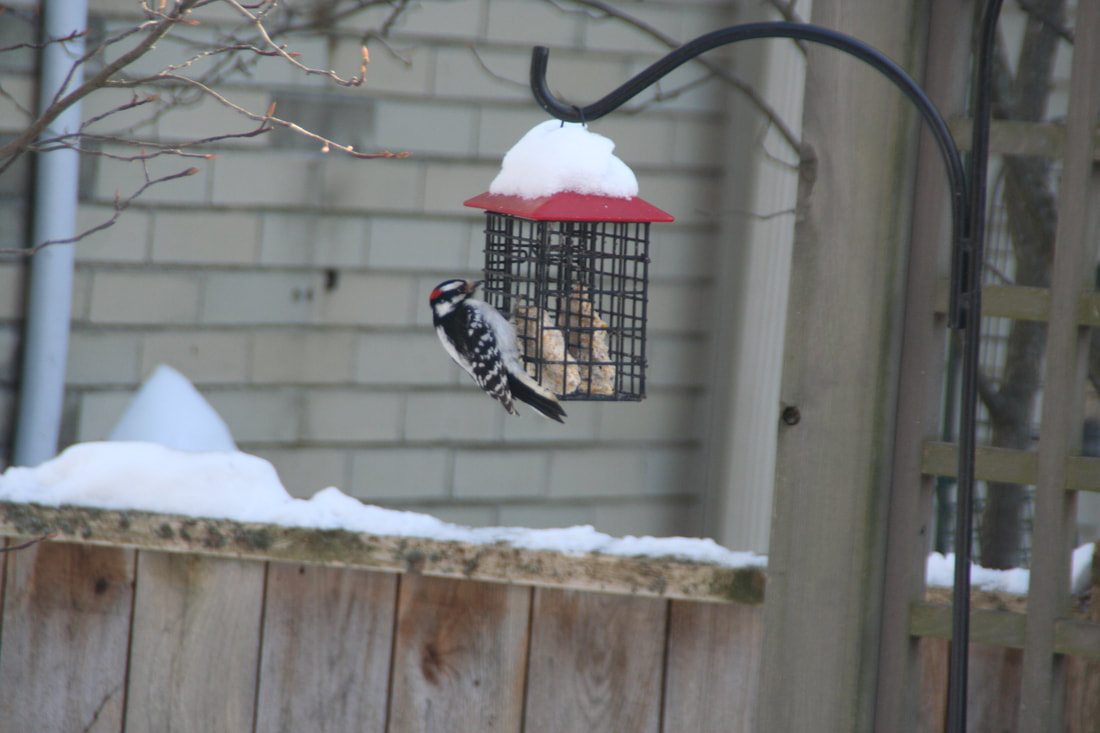|
by Jessie Banaszak Why would we want to feed the birds that winter over in Wisconsin? What are the benefits? What are some of the different birds that winter over in Wisconsin? How can I help the birds?
First of all, not only do birds provide beauty and pleasant sounds, but a lot of birds also help to control insects in your yard. For example, Bluebirds eat beetles (which feed on leaves, including Japanese beetles which feed on plants, flowers and grass), moth larvae (which feed on certain plants) and also grasshoppers and crickets. Cardinals feed on beetles, stink bugs, and snails. Chickadees eat aphids (which eat a lot of vegetables in your garden and flowering plants) and whiteflys. Some of the birds that stay in Wisconsin over the winter include: 1. The Northern Cardinal; 2. The Downy Woodpecker; 3. The Dark-eyed Junco; 4. The Pine Siskin; 5. The Snowy Owl; 6. The White-breasted Nuthatch; 7. The New World Warbler; 8. The Brown Thrasher; 9. The American Tree Sparrow; 10. Finches; 11. Song birds; and 12. Bluebirds. While being indoors a lot over the winter months, it's nice to see the birds hopping and chirping in your yard. With little effort, we can help the birds that winter over in Wisconsin. Many birds struggle to find enough food over the winter months. We can help the birds by feeding them good quality seed. There are many different types of seeds to purchase that will attract birds. When buying bird seed look for good quality seed, such as black sunflower seed, white proso millet or cracked corn. Fillers like red millet or flax are not considered good ingredients in bird seed. Try using white proso millet for Dark-eyed Juncos and American Tree Sparrows. Birds like Northern Cardinals and Blue Jays prefer peanuts. It is helpful to keep a journal of the birds you are feeding to help you determine the best seed to buy. Another way we can help the birds is to provide shelter over the winter months. For example, bird houses made of both wood and plastic are a good shelter (remember to periodically clean them with a mild soap and rise thoroughly). Also, a Christmas tree laid on its side or branches can help provide shelter for the birds. Native plants and trees are also an excellent source of protection for birds. The shelters not only keep birds warm in winter months, but also protect them from predators because they can hide in plants, trees and shrubs. Some of the trees that are protective for birds are: native evergreens, Red Cedar and White Cedar. Birds are wonderful animals that deserve our help to continue to thrive. With more and more people becoming educated and taking an interest in the nature around us, we can provide a better world not just for us but for future generations. Some other sources to look at for information on birds are: www.whatbirdsareinmybackyard.com. Feeder Watch The Schlitz Audubon Nature Center Bird Watcher’s Digest. *works cited : 1. Mattson, Craig. Helping Birds in Winter. Wisconsin Nature. January 7, 2019. https://www.schlitzaudubon.org/2019/01/07/helping-birds-in-winter/ 2. Engberg, Gary. Winter bird-feeding season has arrived in Wisconsin. Wisconsin State Journal. December 23, 2016. https://madison.com/wsj/sports/recreation/outdoors/gary-engberg-winter-bird-feeding-season-has-arrived-in-wisconsin/article_6adb9801-a21d-5c51-a34f-8f5b1e92fea9.html Comments are closed.
|
AuthorsThe Lawn and Garden Tips page is updated by members of the Whitefish Bay Garden Club. Archives
October 2020
Categories
All
|

